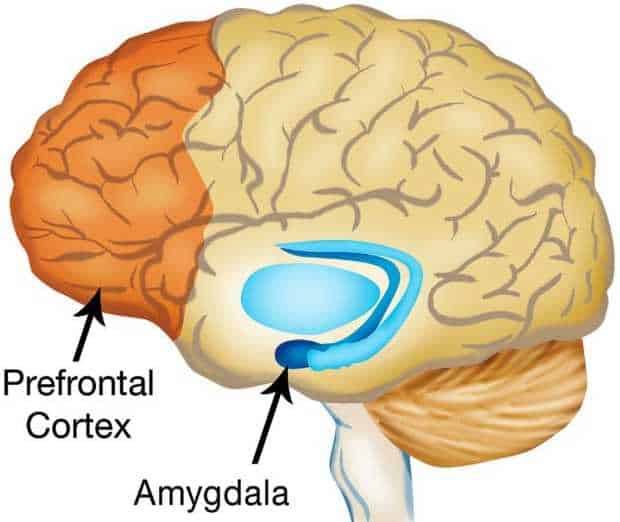
What do I do when I am angry?
If there is one thing that I’ve learnt about anger its, control it before it takes control of you!
Essentially anger management.
So what do I do when I’m angry?
The key to that is in my understanding the anger.
Over 4 decades plus I have learnt to understand my anger. As a result, I have put a 6 step process in place.
For anger management or to control my anger, I’m going to share it with you and would be delighted if you would use it and it makes you a calmer more in control person. Before it gets the better of me, but before you do that Id like you to join me in figuring out why we get irritated and angry.
Do you fume when someone cuts you off in traffic?
Does your blood pressure rocket when your little son refuses to cooperate?
What is anger?
Do you know almost every time we get angry, it’s because something isn’t going the way we have versioned or visioned it.
If it is not going our way – the feeling of anger arises. Because in our minds we react to our interpretation of how the situation we are in, should actually flow.
This could happen for a million reasons. However its a manifestation of our displeasure over something that happened in our childhood. An incident from the past, or a situation we find ourselves in currently.
When these situations occur we feel angry because, firstly, either we feel we are being either threatened or attacked and secondly we feel we are being given a raw deal and treated unfairly. This leads to a growing feeling of powerlessness that frustrates us and causes us to be angry.
How do I react when I feel angry?
How do I express my anger?
There are broadly three ways through which we find expression to our anger:
ANGER feeds of EGO and lives off fear
Before you understand ‘what do I do when I’m angry’ it is important to understand the cause of this growing anger within.
We live in a dog-eat-dog world and therefore it is important to prove that you are powerful and in control. This thought and feeling process is driven by our ego.
In anger, the ‘Ego’ or feeling of ‘I’ separates itself from the others. Therefore, as a reaction prompts our brain to protect us from a perceived sense of injustice being meted out to us or the threat to us.
The ego sets in motion a protection shield anger to safeguard us from those who seek to harm us or show us down. Based on the fear, that the ‘I’ is under attack.
While anger itself is not always prompted by the ego many a time it is the fact that you are letting it grow and not checking it is a result of your ego. Your ego is a by-product of fear.
I always look at growing anger as an equivalent of someone quickly downing a whole bunch of tequila shots. Only to the mind, these are Ego shots. With every shot, you become more and more drunk, until you are drunk to a point where you say and do things that are not in keeping with who you are at all.
What you need to realize is that the ego that is egging you on to anger and the anger may result in you hurting the other mentally or physically even. Only if you can reason this out in your brain will you stop playing into your ego every time you are angry. You will then, only then make the effort at anger management.

What happens when I am angry?
All of us express our irritation and the anger within differently. Anger begins in the amygdala a part of our primate brain responsible for our flight or fight responses.
The amygdala is an organ whose default mode is protective. When we feel dis-ease with a situation or it identifies a threat to our wellbeing it sends out an alarm that prompts the body to be in preparation.
As you become angry, inside your brain, neurotransmitter chemicals known as catecholamines are released causing you to experience a burst of energy lasting up to several minutes.
This, in turn, causes your muscles to tense up, heart rate and breathing to accelerate. As it increases your attention gets focused on the target of your rage. Now other hormones like adrenaline and noradrenaline are released and you are now ready to fight.
In other words, our brains are wired to prompt us to act before we can reason the extent of the threat and consider the consequence of our actions.
The amygdala is a super-efficient threat warning system. Therefore, it overrides the prefrontal cortex. It is the part of the brain responsible for thought and reason. However, if you train yourself you will become aware of your anger. Increasingly you can reverse it by giving your prefrontal cortex the upper hand over your amygdala, thus bringing reason into the getting angry equation.
Learning to manage anger properly is a skill that has to be learned, instead of something we are born with, an instinct.
5 Different types of anger
Visible Aggression
Are you the kind of person who shouts screams and slams doors? Do you sometimes even turn abusive and violent when you are hopping mad? Do you feel so overwhelmed by the emotion that you lash out at the object of your rage?
You obviously are suffering from Visible Anger.
Passive Aggression
People who use sarcasm or mockery as a way to hide their feelings, typically express this form of anger. They tend to avoid confrontation with people or situations and begin ignoring the person they are angry with.
Another form of this passive anger is being sarcastic towards the other person or deliberately non-performing. We see this a lot with students who are angry at their teachers or in a boss-employee relationship.
Deliberate Anger
Using anger to gain power over a situation or person.
A person expressing this form of anger may not start out angry but will get angry when something does not turn out the way he or she wanted. Or, someone doesn’t see eye to eye with something they planned. This type of anger is planned.
Self-inflicted Anger
People who are prone to this type of anger believe they have done something wrong to somebody and are angry with themselves. Some of the ways they can take that anger out by either starving or overeating and sometimes self-harm as well.
Retaliatory Anger
This is probably one of the most common, of the bunch. Retaliatory anger usually occurs as a direct response to someone else lashing out at you… has that happened to you often?

The Anger Path
Every moment of our lives as we travel along, we interpret the moment, biases connected with the moment we have stored in our brain.
The moment you feel the anger is very important to you. All of us interpret situations differently, so a situation that makes you very angry may not make someone else feel angry at all.
For instance, recently a gang of us were playing Holi [the Indian festival of colour where we drench each other in the coloured water. Now two of my friends were standing together chatting. I came up to them from behind and poured ice cold water on both of them. One of them lost it, her face went red and in her mind, she was showering me back with the choicest abuses. The other friend shivering in the cold enjoyed the moment in the spirit of the festival.
Recognise the signs of Anger
The first thing to do is to become aware of your anger.
There is no way you can control it if you are not aware of the mind-body process of becoming angry. It is very important to look out for the early warning signs to your anger. I used to have a boss who tapped his feet on the floor when he was growing angry. This was a warning sign for an employee like me to back off.
I know friends who gnash their teeth and even clench their fists when they are angry. Each one of us gets what I call early warning signs of an oncoming anger storm. However, behind this is another force within that is hard to beat, the ego.
Not being aware is the biggest hurdle to cross in anger management.
THIS TOO SHALL PASS
Godman and spiritual teacher Osho puts it very well.
“Anger is a very small thing. If you can just wait and watch, you will not find ‘thousands of wild horses.’ If you can find even a small donkey, that will be enough! Just watch it, and it will go, slowly. It will enter from this side and will go out from the other side. You just have to keep a little patience not to ride on it.”
Why should you let anger pass?
Pass is the operative word here.
If you realize that the anger will pass in a moment, you will wait out that moment. Yes sometimes that moment may take a while, however, it too will pass. When we become aware of the factors that are causing the outburst of anger and are able to control them anger shall pass. THIS IS THE MOST IMPORTANT POINT OF THEM ALL for good anger management.
Also, read how World Boxing Champion Muhammad Ali channelled his anger in these quotes
http://wordpress-334546-1028402.cloudwaysapps.com/muhammad-ali-famous-quotes/
Change course quickly
Even though you may realize that it is the ego within that motivates anger you may not be able to control the wave of rage inside with reason.
So what do you do?
Quick action is needed to change course completely whey you are getting angry. I find the best way is to walk away from the situation.
I have a friend who counts till 20 loudly and breathes deeply when he begins to feel anger grow within. Each one of us has our own mechanism to delink ourselves from an anger based situation. Find what works best for you and use it to move away, the instant you feel the anger growing.
Walking away is at the foundation of anger management!
Reason out the anger at leisure
Once you are in a calmer state ask yourself these questions:
1. What was the source of my anger?
Was I responsible for this anger or was it the other person? Here you have to be brutally honest with yourself because you always know the root of the feeling of pain irritation and anger. Know what is true. It is very important even if you are wrong and accept the wrong. Be easy on yourself.
I would say write it down. Put the cause of the anger in words and then bring clarity to the cause of the anger. If it is you, who is responsible for the cause then you need to do some thinking within.
If it is the other person. Your feelings and point of view will need to be communicated to the person when you are in a calm state of mind. It is very important for your sanity to communicate the reason for your anger to the other person. Communication of the emotion of anger always leads to better anger management
2. What do I bring to this moment?
When angry switch on love!
Each moment of my life no matter what the situation is, I ask myself what I bring to this moment. Do I bring love, or do I bring fear? What is your operating system?
There is a very close relationship that exists between anger, rage and pain.
Take time off and deep dive to locate the origin of the emotion the root cause. This may take time but it is worth it, once you locate the root cause for the anger replace it with a thought of love. You will notice over time anger tends to dissolve and love and sense prevail. This is the key to anger management.
3. What do I choose – Anger or Forgiveness?
Life is short don’t store anger, let go and Forgive
The moment you choose to forgive and move on you choose to progress and you choose to move on. In a way, you hug the future and all it holds tight releasing the past and there is a good reason to do this.
Stanford University professor Dr Frederic Luskin, the co-founder of the Stanford Forgiveness Project, sums up forgiveness by saying, “When you don’t forgive you release all the chemicals of the stress response. Each time you react, adrenaline, cortisol, and norepinephrine enter the body. When it’s a chronic grudge, you could think about it twenty times a day, and those chemicals limit creativity, they limit problem-solving. Cortisol and norepinephrine cause your brain to enter what we call ‘the no-thinking zone,’ and over time, they lead you to feel helpless and like a victim. When you forgive, you wipe all of that clean.”
On Anger, Mother Teresa said, “Why should I expend energy in anger when I can expend it in love?”
Can there be a better method for Anger Management?
I think not so!






